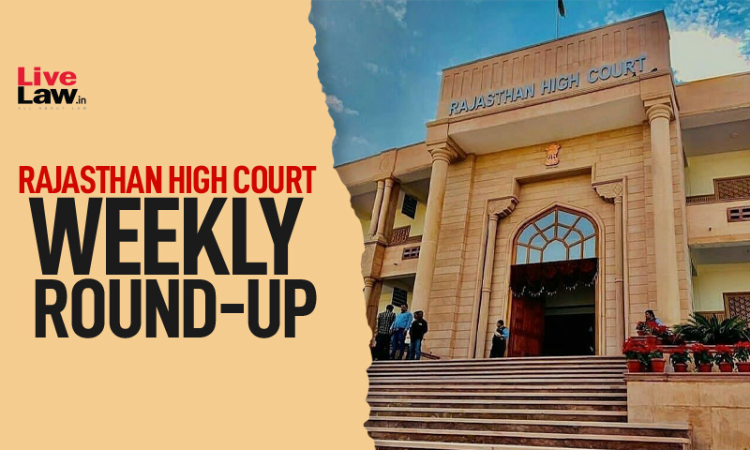Rajasthan High Court Weekly Roundup: January 10 To January 16, 2022
ANIRUDH VIJAY
17 Jan 2022 10:24 AM IST

Next Story
17 Jan 2022 10:24 AM IST
Judgments/ Orders of the Week 1. Adarsh Credit Cooperative Society: Rajasthan High Court Orders Expeditious Disposal of Depositor's Claim Application Case Title: Chetan Choudhary v. Union of India and Ors. Case Citation: 2022 LiveLaw (Raj) 7 The Rajasthan High Court on Monday directed the Central government to expeditiously decide on the claim application filed...
